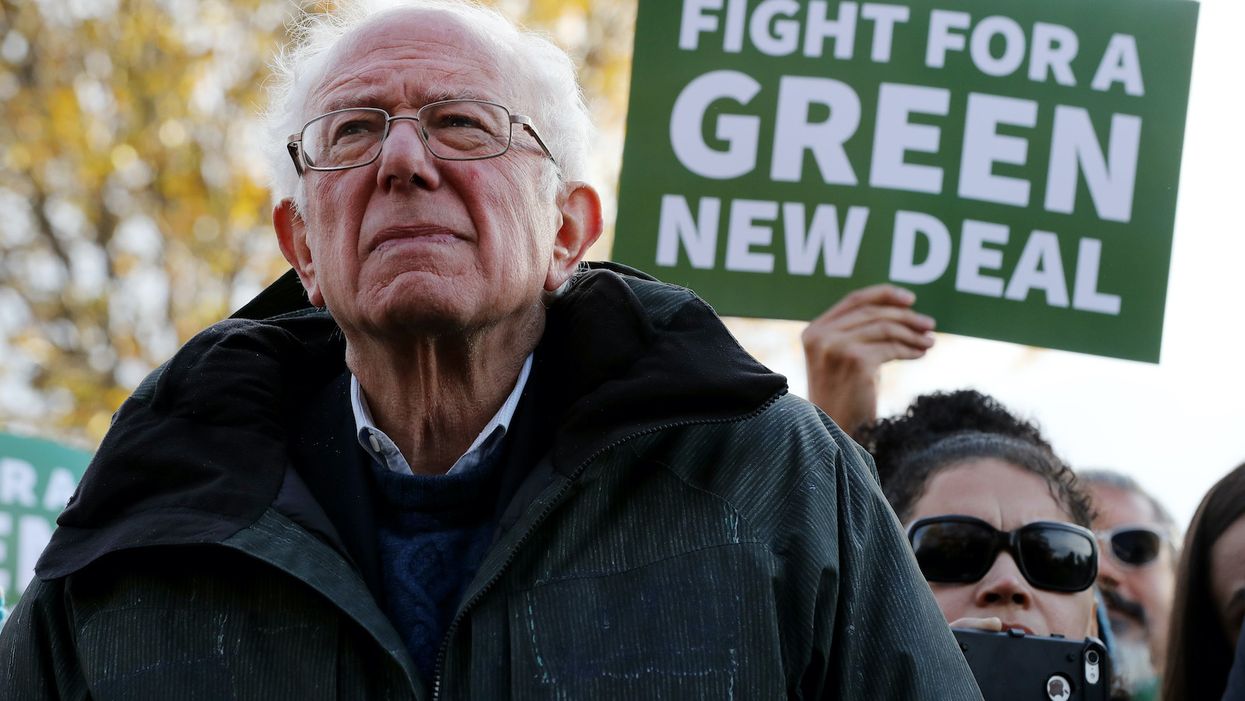
Chip Somodevilla/Getty Images

'The Green New Deal would effectively destroy America's energy industry, and with it, our entire economy'
The Green New Deal wouldn't just saddle Americans with a hefty tax burden, it could also mean a substantial spike in their household costs, according to a recent study.
On Tuesday, the Competitive Enterprise Institute published a study that analyzed the Green New Deal's effects on "the transformation of electricity production, transportation, elements of shipping, and construction in 11 representative states that implementation of the GND would necessitate."
Among 10 of the 11 states analyzed, the study found that "the average household burden of the GND in its first year is $75,168" with average projected annual average cost of $47,755 for the four years afterward. The outlier among the analyzed states is Alaska, which the study said would see a first-year cost burden of $84,584 with an annual cost burden of $57,171 for the four following years.
The study built off a similar report that CEI released in July 2019 and based the estimated cost increases on energy-related changes discussed in the Green New Deal's framework, which include increased demand for electricity, increased costs associated with shipping and logistics, new vehicles, and the cost of retrofitting buildings for energy efficiency. It was conducted by CEI, Power the Future, and the Wisconsin Institute for Law and Liberty, according to a CEI news release.
"The Green New Deal would effectively destroy America's energy industry, and with it, our entire economy," Daniel Turner, executive director of Power the Future, said in the release. "Right now, our booming national economy and record low unemployment rate is driven by abundant, domestic, reliable, and inexpensive energy produced by millions of men and women across the country. Any policy that proposes to reverse this success is a threat to jobs, to rural communities, to national security, and to the very prosperity that Americans are experiencing."
However, the Green New Deal's total consumer costs could be even higher than the figures listed in the study. The authors of the study also noted that their estimates do not include the "cost of the non-energy components" of the resolution, which they said "might dwarf the energy-related costs by an order of magnitude."
These findings could have some implications on the campaign trail as the states evaluated in the study include key presidential election swing states such as Ohio, Pennsylvania, and Florida. This could spell trouble for the Democratic presidential candidates who have supported the radical environmental resolution — such as Sens. Bernie Sanders (I-Vt.) and Elizabeth Warren (D-Mass.) — should they end up getting the party's nod to run in the general election.
Introduced by Rep. Alexandria Ocasio-Cortez (D-N.Y.) and Sen. Ed Markey (D-Mass.) last February, the "Green New Deal" was a radical policy proposal meant to save the environment through implementing massive changes to the American economy, infrastructure, and transportation methods.
In addition to the household cost, there's also the taxpayer burden to consider when looking at the proposal. While Ocasio-Cortez has said that the plan would cost at least $10 trillion, a study done by the American Action Forum has put the possible total price tag as high as $93 trillion.